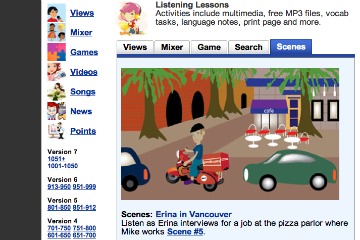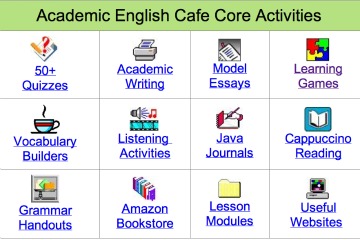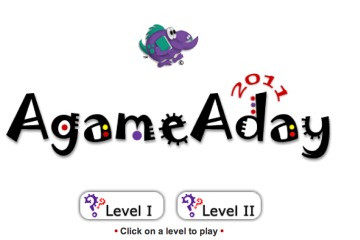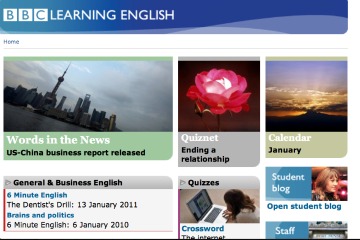Jan 26 2011 by Nicholas Burton, Stirling Observer Wednesday
AS YOU approach Anuban Damrongrachanusorn school, the first thing you notice is that there is no gate.
Indeed, the ‘front gate’ is more of a ‘front gap’ in the wall, covered by bits of wood, random building supplies, sparks, noisy machinery and Thai workmen who smell of whisky.
The reason for said chaos is that the school has decided to build a new gate. Boldly, disregarding such trivialities as the existing gate being perfectly acceptable and there being holes in many classroom floors.
Coupled with a myriad of other, less potentially-fatal shortcomings, the school has elected to waste everyone’s time and money building a new sodding gate.
Welcome to a balanced and well-run Thai school. And no, I’m not being sarcastic. Compared to other businesses and offices in Issan, a village in north-east Thailand, this institution is a well-oiled machine.
Passing through the gates, trying to avoid being showered in hot sparks from ‘Foreman Drinksalot’ weilding a welder, a stroll into the main area is a relatively pleasurable experience.
You’re greeted with an expansive playing field, flanked by a series of long, two-storey buildings with much greenery on display and a little pond with a wooden gazebo floating in it. Very picturesque all round.
The long, low buildings which make up the school are quite easy on the eye as well, although a little worse for wear.
Like the rest of the town, it was built quite some time ago and, in true Issan style, from concrete and plywood.
But while the buildings themselves will never win any awards for beauty, the design is, in my humble opinion, quite charming.
Each classroom on the ground floor is accessed straight from the outdoors, and on the second floor, via a kind of open-air corridor (or a massively extended balcony, depending on your perspective).
So you basically have two rows of classrooms on top of each other which are kind of ‘outdoors-ish’, without being a hippy about it.
There are, as far as I know, no internal corridors of any kind in the school, and all the rooms have at least one door leading straight outside. Delightful.
Another key feature of the landscape that you would notice at this juncture are the dogs.
Thailand, and Issan in particular, is full of stray dogs, and being Buddhist the locals let them wander wherever their fancy takes them.
Glassy-eyed, they meander about the grounds, winding their filthy way between the children, pausing only to mate or fight with each other, generally at really inappropriate moments.
Basically, think George Square in Glasgow after the pubs have shut on a Saturday night, but in dog form.
It kind of detracts from the otherwise picturesque surroundings, but hey-ho, that’s what you get when such a laid back country can’t get its act together long enough to form an RSPCA.
Even Thai kids, who are normally fearless and can often be found diving from rooftops or strangling each other with extension cables – as has previously occurred in one of my classes – run when these mutts start going for each other in the middle of the playground.
There’s a place for being relaxed about things and a time for ensuring that children placed under your care don’t die of rabies before the day is out.
But I digress, let us continue on our tour and head for the MSEP (Maths, Science and English Program) room, the office that myself and the two other visiting teachers share with two Thai teachers.
It’s a decent size of room, with working – gasp – air-conditioning and nice big windows, offering a lovely view of the playing field.
The walls, window, desks, floor, and indeed everything in the room, is reasonably grimy, as is customary in these parts.
In front of my co-teacher’s desk, a pipe (which seems to exist for no other purpose) drips water onto a plug socket.
There are three electrical wires which have snapped or come loose and never been replaced, hanging halfway up the wall, sparking occasionally like something out of a poor attempt at a disaster movie.
Welcome to Issan: Land of a Thousand Accidental Deaths by Electrocution.
Either way, you get used to it after a few weeks, and before you know it you re just as blase about personal safety as the Thais.
Car missing a wheel? Don’t worry, it can still run. Floor covered in glass? Hmmm, better jog around in bare feet.
(Again, this actually happened in my P1 class. A glass broke, and immediately all the kids ran to help pick it up, I nearly had a heart attack).
A group of guys on makeshift motorbikes firing shotguns into the air? It’s fine, it’s just a bunch of toothless yokels from the villages coming into town for a bit of shopping.
Digression is becoming a habit. Now let’s leave this temple of grime I call an office and head to the far end of the building.
The school is a big, sprawling site, so they have a radio system – essentially a bunch of loudspeakers on poles dotted around the grounds – which are run from this little glassy-office thing, the radio room.
Being ‘farangs’, what Thais call us foreign types – it’s actually a very pale-skinned fruit and something of a novelty – we get twenty minutes or so, one morning each week, to go on the radio just before school officially begins.
The purpose, ostensibly, is to help the kids get used to hearing English, a noble idea which we rather took to heart for the first few weeks.
We talked about Western culture, the weather and other such inanities, and played carefully-chosen songs picked to be relatively easy for a foreigner to follow.
The Beatles, Madonna, Johnny Cash and so on.
And then we thought: ‘sod it’ and played Eminem, the Rolling Stones and Bob Dylan, because it’s early in the morning and we were tired of listening to rubbish music.
That, plus our audience is 6-12 years old and hardly understand any English anyway.
I digress, therefore, I am.
So a little further on, maybe fifty metres past our mostly transparent radio room, is the main assembly hall.
This is a pretty decent room: cool, airy and massive. With 2300 kids to accommodate, a lot of space is required.
It’s nicely decked out in wood flooring, and complete with a built-in stage and epic sound system.
Here is where the school entertains visitors from other schools, in a most arresting and singular fashion.
The principal, and his opposite number from the visiting school, will be seated on a big leather couch and served cool drinks by members of the office staff.
They are obliged to approach the couch crawling on their knees, a genuinely alarming sight, with the visiting teaching staff seated behind the two figureheads.
They then watch an old video which runs for about twenty minutes and is basically one long boast about how awesome the school is, the kind of thing you would show potential investors or shareholders.
After the entertainment, our principal will stand up and make a 30/45-minute speech about why this school is the best and everyone else can lump it.
And then the visiting principal will thank our school and our director for boasting for two hours.
Then they all go and get some food and go home. Fantastic or what?
Digression is the better part of valour, as they say.
Finally, we arrive at the last location of interest: the outdoor stage.
This is a simple concrete platform overlooking a large, open piece of paved ground, and it is here that the school holds its really big parties.
We, the visiting teachers, have been to a couple since we arrived. ‘Farangs’ are a bit of a novelty, and also a signifier of the school’s wealth and status since it shows they can afford to pay extra teachers to run the MSEP department.
As such, we’re almost always seated at a table with a visiting politician or principal in order to show us off. Which I don’t mind, as there’s invariably free whisky on the go.
Thais drink like fish, and Thai teachers drink like particularly drunken fish. Then they do karaoke, while completely hammered.
When I say ‘party’, I don’t mean an office Christmas party – where employees get drunk and flirt – more an awards ceremony with kids running about all over the place, wondering why their English teacher is sitting on the ground drooling and giggling to himself.
God, I love Thailand!
If you’re reading this and haven’t been to Thailand, it will probably sound like a hellish place.
This is not the case, despite everything I’ve mentioned.
The kids are (almost) universally awesome, it’s bright, sunny and warm, and (almost) everyone’s friendly and helpful.
That concludes our tour of Anuban Damrongrachanusorn. Please take all belongings with you when exiting the area. Unattended baggage will be pinched by small children. Please mind the gap between Anuban Damrong and reality.

















